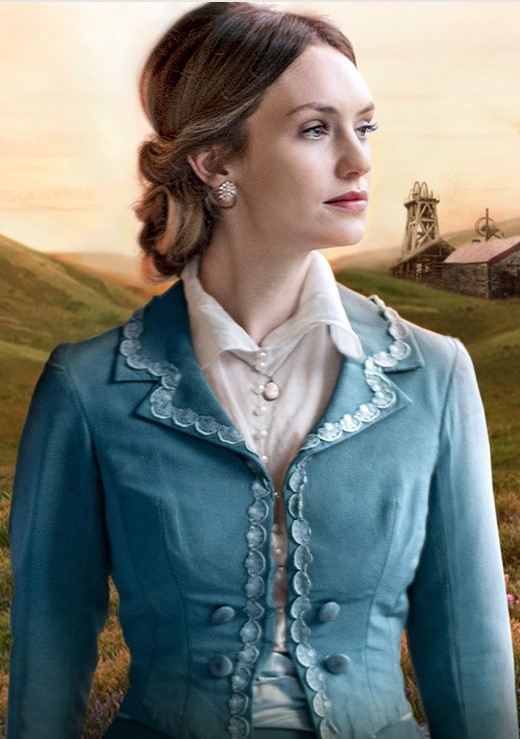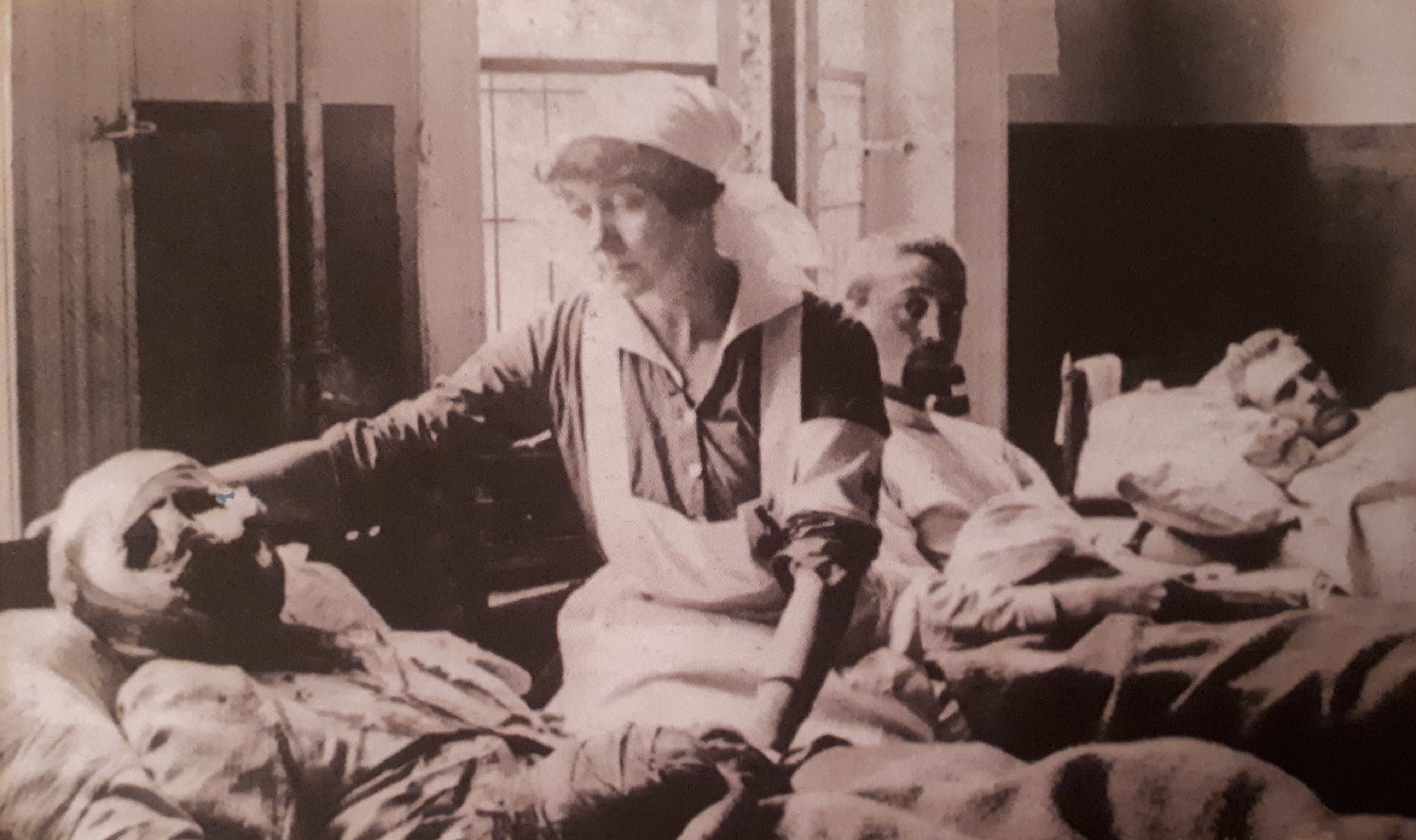Francesca’s latest Wartime in the Valleys novel, Hope in the Valleys, features Elizabeth Meredith who becomes a VAD nurse on the French war front in the Great War. But what did that entail?
Apparently one nickname for the VAD nurses, working voluntarily in hospitals during the First World War, was ‘Very Adorable Darlings’, obviously using the initials to convey how the soldiers considered them. Although it’s nice to know they were appreciated, I can’t help thinking this undervalues their contribution to the war effort.
So who were the VADs? For a start, it stands for Voluntary Aid Detachment, an organisation created in 1909 with the support of the Red Cross and St John’s Ambulance Brigade, due to a fear that there would be a shortage of nurses to aid the military should there be a war. During the Great War (and Second World War) they were used in both hospitals in the UK and abroad where the soldiers were fighting. These ‘nurses’ were not trained like official nurses, but had taken first aid courses.
It wasn’t uncommon for them to be resented by the qualified nurses who thought it unfair that they should be called ‘nurses’ when they hadn’t done the same training. It didn’t help that the VADs were usually middleclass women, compared to the mainly working-class nurses. Usually they were given the dirtiest and most tedious jobs, like scrubbing, dealing with soiled dressings, emptying bedpans and cleaning up bodily fluids. And also the disposal of limbs. Some did work with nurses who valued their contribution and who trusted them with more complicated jobs.
Some of the books I’ve used to research VADs in the Great War
Those who, like Elizabeth, ended up near the war front in France, must have felt like they’d entered hell. Everything about it would have been harder than working in a hospital back home, where conditions would have been cleaner, not mud encrusted and covered with the detritus of explosions. The hospitals in Britain would largely have been dealing with soldiers who’d already been patched up in some way. It’s hard to imagine what horrors the nurses and VADs abroad encountered when men, often great numbers of them, descended upon a hospital at the front. There are reports of limbs blown off or hanging loose, gaping, festering wounds and skin and bone blown apart by gunshot. And then there were the severe mental health problems labelled at that time as ‘shell shock’, that we now call post-traumatic stress disorder.
The percentage of deaths on the front would have been way higher than anything they’d have encountered at a hospital back in Blighty. Many of the men would have been very young, not even considered adults, some probably small for their age as the underfed working classes often were back then. The VADs would have been reminded of their own fighting brothers, cousins, maybe uncles and fathers and many of their own sweethearts, knowing they faced the possibility of the same fate.
And by the way, the VAD nurses were not paid. The clue is in the word ‘Voluntary’. That’s right, they did it for nothing. Yes, they were mainly middle class and could afford to, but that shouldn’t be a cause to belittle their efforts. Having read many accounts of what they experienced, I can only admire them for their sterling work and dedication under horrific conditions.
A VAD in a ward I’m guessing was back in Britain, as the hospitals on the front tended to be makeshift huts and tents.
Hope in the Valleys
It’s August 1917 and WW1 continues to take a toll. The villagers of Dorcalon, a mining village in the Rhymney Valley, try to keep hope alive; but every day brings fresh tragedy as more of their sons and fathers are killed on foreign battlefields.
Elizabeth Meredith, daughter of mine manager Herbert, enjoys a privileged position in the village, but she longs to break free of society’s expectations.
Falling in love with miner, Gwilym Owen, brings more joy to her life than she’s ever known… until she’s forced to choose between her love and her disapproving family. Seeking an escape, Elizabeth signs up as a VAD nurse and is swiftly sent to help the troops in France, even as her heart breaks at leaving Gwilym behind.
Separated by society and the Great War, can Elizabeth and Gwilym find their way back together again? Or will their love become another casualty of war?
Hope in the Valleys is published by Hera Books and is available here:
Kobo: United Kingdom Canada Australia New Zealand United States



